Exchange and Cooperation: Value of the T³ Teacher Network
The history of the T3 teacher network is a history of cooperation on many different levels. It is about cooperation between individuals as well as between institutions across national and ‘content’ boundaries. The common thread is understanding that integration of technology can help improve the teaching and learning of content, while strengthening process-oriented competencies and promoting a different teaching methodology. From the outset, it was clear that the occasional use of technology would be nice but would not enable progress designed to last. Only if every student would have their own tool designed for the purpose of learning, a sustainable positive development could be expected. Hence the focus on graphing calculators, which can nowadays also be used in combination with software or apps.
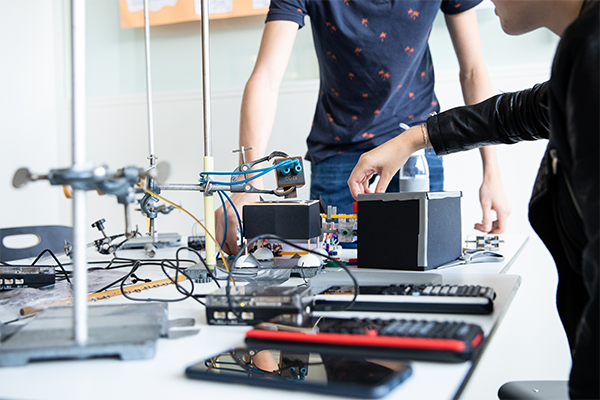
Founding institutes
Bert Waits, professor and researcher at Ohio State University, recognized very early the pedagogical potential of graphing calculators for secondary education. As a university lecturer, he was well connected internationally. Accordingly, it was an association of universities and educational research institutes that launched the T3 Europe teacher network at ICME 8 in Seville in the summer of 1996. Among the founding institutes were the Westfälische Wilhelms-Universität Münster in Germany as well as the University of Plymouth and the Freudenthal Institute in the Netherlands. Three years earlier, in 1993, the International Conference on Technology in Mathematics Teaching (ICTMT) had already been established through the decisive commitment of Waits. In 2021, the conference was held for the 15th time.
Independent teacher network
Due to personnel changes or changes in the orientation of institutions, the sponsorship of the respective T3 country organization has changed over the years. In many countries, it continues to lie with local educational institutions, such as the mathematics teachers' association APM in Portugal. In other cases, Texas Instruments is helping the network by taking care of the administration. What has remained unchanged to this day is the internal independence of the teacher networks, regardless of how the external administration is organized. Many teachers indicate that they value making use of each other's knowledge. ‘The T3 teacher network shares best practices and this makes teaching easier because you can either get help from the experts or those who have already experimented and have experience,’ said Pier Luigi Lai, T3 instructor Italy.
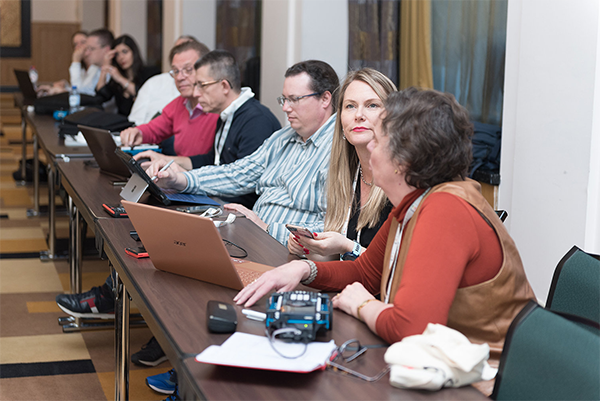
Workshop during Sharing Inspiration 2019.
International conferences
Cooperation among the local T3 networks can be seen at various levels. For example, European
T3
instructors are regularly part of the program of the annual T3™ International Conference. Within
Europe,
the exchange takes place via the virtual Sharing
Inspiration
Conference,
which used to take place every two years in person and is now held virtually on a quarterly base. The participants
present their respective teaching projects and discuss the question of what future mathematics and science teaching
and learning should look like. ‘The support from Texas Instruments and the T3 network is
outstanding. The help and training they provide for teachers are an added value for everyone,’ said Alexandre
Gomes, physics and chemistry teacher from Portugal.
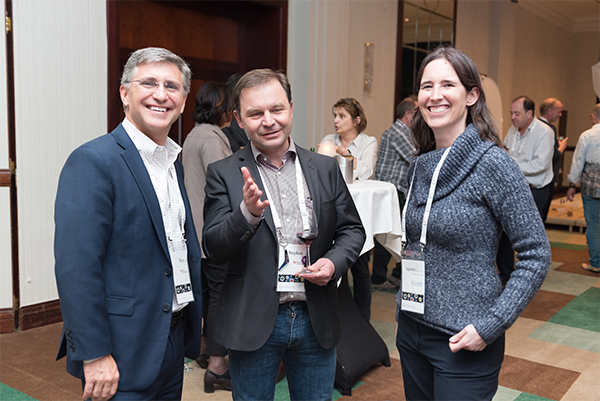
Peter Balyta (TI), Stephan Griebel (TI) and Agueda Gras-Velazquez, Ph.D. (Scientix), during Sharing Inspiration 2019.
Creating concepts and content
A lot of conceptual work is done in working groups and has also been published. Examples are “The Case for CAS” and the “European Science Pilot.” Currently, the focus is on a project on education for sustainable development, which many teachers have already contributed to and have created teaching materials. Many of these teachers are also involved in the TI STEM Lab network, a group of general and vocational secondary schools across Europe with a strong profile in STEM education. Due to COVID-19–related travel restrictions, the exchange of TI STEM Labs currently takes place only locally or virtually.
Professional and personal friendships
Over the years, many professional and personal friendships have developed from the encounters at the conferences and the joint project work, which in turn have produced joint initiatives. An outstanding example from the recent past is a Portuguese-Finnish student exchange project that is of great value to the students. Student Hugo Magalhães said, ‘I feel privileged because not everyone gets to participate in a project like this. The workshops gave us a type of brain training we don’t get in normal classes. It was a valuable experience to share it all with students from another culture as well.’ T3 Europe also maintains contacts in regions bordering Europe, among others, project groups in Turkey, the United Arab Emirates or Bahrain.
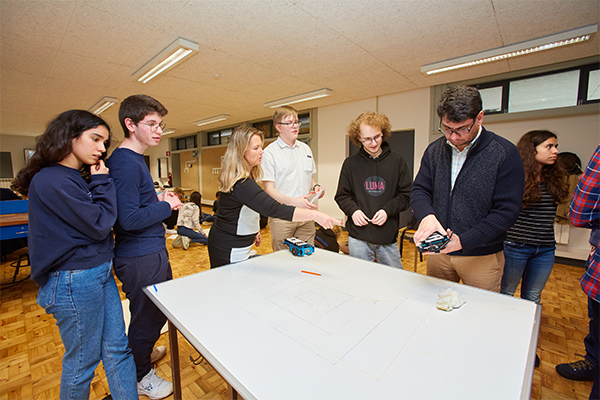
Portuguese-Finnish student exchange project.
Exchange with colleagues
If you ask teachers that are involved in the T3 network what they value most, the answer is unanimous: the exchange with colleagues, regionally, nationally and internationally, as well as across disciplinary boundaries. ‘To me, the added value is that you learn from each other and that you make international contacts,’ said Dutch mathematics teacher Wesley Keldermans when participating in the Sharing Inspiration conference 2019. Also, teachers mention the joint project work. This often leads to a deeper understanding of the different pedagogical approaches, thus broadens personal horizons and can be an inspiration for one's own work. If you would like to become part of the network, you are cordially invited to do so by emailing s-griebel@ti.com.
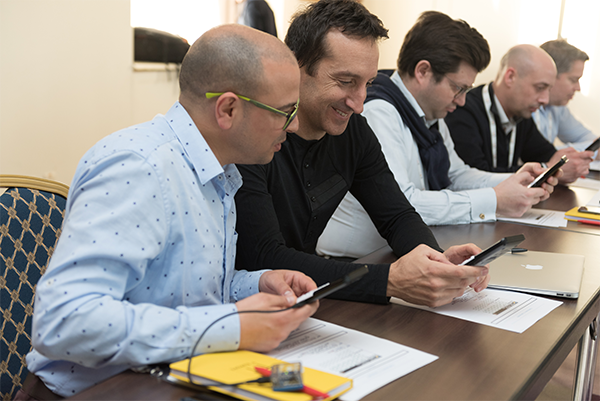
Exchange with colleagues during T3 conferences.
